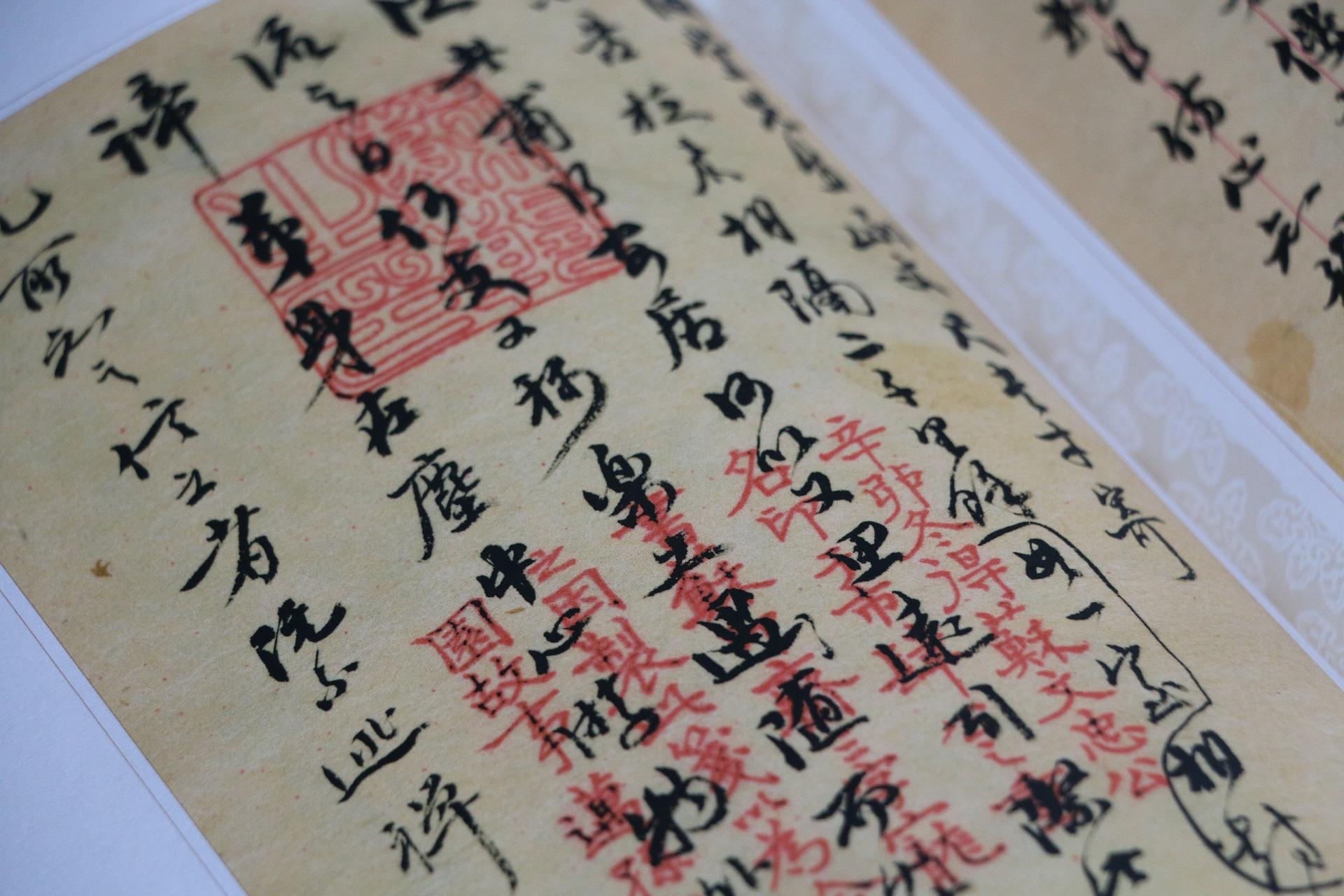Scholarship level NCEA Chinese is above and beyond sitting NCEA Level 3, but it's also the assessment that comes with a monetary award if you achieve it. So, how does Scholarship work?

What Does it Mean to get Scholarship in NCEA Chinese?
Most NCEA subjects have three standard levels: Level 1 (normally done in Year 11), Level 2 (normally done in Year 12), and Level 3 (normally done in Year 13). As well as this, there is "Scholarship", which you can technically sit at any time, but as you could think of this as being Level 4, most people sit their Scholarship exam when they are taking the NCEA subject at Level 3.
Confused yet? Scholarship is a separate exam that you don't have a class for. It requires the student to be self-directed and develop a more in-depth knowledge of the subject.
If you or your teacher feel that your knowledge of Chinese is such that you will most likely receive an Excellence for NCEA Chinese Level 3, then sitting the Scholarship exam would be a great idea. If you just like sitting exams, why not give it a go too!
There is no fee for New Zealand students to sit NCEA or NCEA Scholarship. You do not have to put yourself forward to sit the Scholarship exams, but there are benefits if you do!

What are the benefits of NCEA Scholarship?
While there are monetary awards for gaining an NCEA Scholarship in any subject, one of the advantages that is often overlooked is the understanding that you will earn.
To get Scholarship, you need to have a really in-depth understanding of the topic and clearly explain what you know. Having this level of knowledge and familiarity with Chinese means that you are not simply studying to pass an exam but that you really have a background that can be useful throughout life. After all, the goal of taking Chinese as a subject isn't just to get a grade but to communicate with Chinese speakers.
Of course, obtaining Scholarship in at least one subject also means that the New Zealand government will award you with $500 to go towards tertiary education. Gaining top marks could see you being awarded up to $30,000!
While achieving NCEA Chinese Scholarship isn't an automatic entry into the tertiary education of your choice, proving that you can work at this level goes a long way to opening the doors of the educational facilities of your choice.

Financial Awards for NCEA Scholarship
You do not need to take Scholarship level exams in all subjects. If you only want to sit the additional exam for NCEA Chinese Scholarship, that is perfectly fine. The system has been set up so that if you gain a pass in only one or two Scholarship exams will see you awarded $500 for each pass. This is called the "Single Subject Awards".
However, many students studying at the Scholarship level are looking at taking 3 or more subjects, which means being awarded the "Scholarship Award". This will see you being awarded $2000 every year for three years. The catch is that you must maintain a B average at tertiary study – but you can defer the payment until you are ready to attend.
If you excel at one subject but feel middle of the road in others, you can also focus on just that one area. The top student in each Scholarship subject is awarded $2000 every year for three years, even if you only have the one Scholarship subject. But you can get your $2000 Top Subject Scholar Award AND $500 for obtaining Scholarship in a different single subject. So, you can potentially be awarded $2,500 for just two subjects at NCEA Scholarship level.
As well as the basic Scholarship Awards, the top students in New Zealand may also be awarded the Premier Award. This is only for the very top 7 to 12 students, so highly restricted. But the benefits other than prestige do include $10,000 every year for three years of tertiary study.
There is also an "Outstanding Scholar Award" for the following 40-60 students. Again, this is a highly competitive award. You need to obtain a minimum of two "outstanding" levels in your NCEA exams and be on the list of top students. Students earning the Outstanding Scholar Award receive $5,000 each year for three years of tertiary study.
The number of students able to achieve either the Outstanding Scholar or Premier Awards will vary each year slightly. Still, no more than 72 awards are issued. Note that these are for the top ~50 students in New Zealand, not the top ~50%.

Working at a Scholarship Level
To pass your scholarship exam, you need to have a more in-depth understanding and a greater knowledge of the subject. For example, in passing Chinese NCEA Scholarship the basic requirements are being able to "effectively communicates, in a natural way, and in a manner that is fluent and flexible".
However, there is an additional level of Scholarship for "Outstanding" performance, which takes the expectations of your knowledge and understanding to an even higher level. For example, the same expectation as above now read: "effectively communicates, with sophistication and style, in a natural way, and in a manner that is sustained, fluent, and flexible".
The difference between the two levels is subtle but clear.
Another example for NCEA Scholarship Chinese we can see the difference between what might be a "Merit" in Level 3 Chinese, but a "not obtained" for Scholarship Chinese is: "assembles ideas that are limited or partially developed and that only sometimes go beyond the given stimulus material". Here to reach a Scholarship performance, the requirement is: "engages the intended audience throughout the response", while to achieve an Outstanding Performance, you need to take it even further with "captivates the intended audience throughout the Response".
Tips for Getting NCEA Chinese Scholarship
Obviously, to be awarded with Scholarship for NCEA Chinese you do need to have an in-depth understanding of Chinese, both written and spoken. Part of your study for NCEA Chinese is likely going to include tools like using flashcards, listening to Chinese songs, watching lots of Chinese movies and talking Chinese to everyone you can. To obtain your Scholarship award, you need to move these up a notch.
Understand the NCEA Assessors Reports
You have access to the assessor's reports for NCEA Scholarship Chinese, as well as other subjects. So, reviewing the 2020 Assessors report, we can see the difference between "Outstanding Performance", "Scholarship", and "Not Awarded" written quite clearly. While there is obviously an expectation that a better understanding of the written and audio texts used in the exam will lead to a better standard, there is more to achieving Scholarship than this.
- Show connections between your own life and the text question, compare Chinese and New Zealand context.
- Don't be afraid to use more sophisticated language. Recheck for grammatical errors, but don't dumb yourself down in fear of making mistakes.
- Show that you are thinking about the text and how to express your thoughts. Make notes as you listen or read so that you don't forget key points to what you want to say when answering the question. While your notes aren't marked or assessed, they help you follow a clear line of thinking when you are answering.

Work with a Tutor who Understands Scholarship Level Chinese
Going through the NZQA assessor's guides to work out their focus areas is an excellent way to grasp the requirements. Still, it can also be challenging to work out if you achieve the required level. This is where bringing a tutor familiar with NCEA Scholarship level Chinese will be a great benefit.
While you can certainly achieve a great level on your own, having the backup of someone knowledgeable who cannot only guide you in the right direction but who can provide instant feedback on what you're studying is invaluable for learning Chinese.
There is more to a pass than simply improving your understanding and ability to communicate in Chinese You also need to be able to communicate in a way that engages the assessors. Working with a conversational partner is good to help improve your understanding of spoken Chinese. Still, if you are aiming to achieve Scholarship, you really do need a Superprof tutor who has experience of NCEA at this level.
Review past exams
This should be something you'll be doing for all your NCEA subjects; however, don't forget that you also have access to the Scholarship exams as well as the standard Level 3 exams from past years. Not only do you have access on the NZQA website to exams, but you have access to the audio that was used and the transcript of that audio.
Review Past Exams with Exemplars
In addition, you have access to exemplars. Work through an exam that has a marked exemplar available. Then look through the exemplar to see how your work has compared. There are usually exemplars available for all levels, so you can see how you could improve and where your weaknesses are.
The NCEA Chinese Scholarship Journey
When you are just starting your NCEA journey in Chinese, the idea of being able to communicate fluently in a way that is captivating and sophisticated can seem incredibly overwhelming, but if you start off on the right track and manage a sustained effort, this is an absolutely achievable goal.
Summarise with AI:















